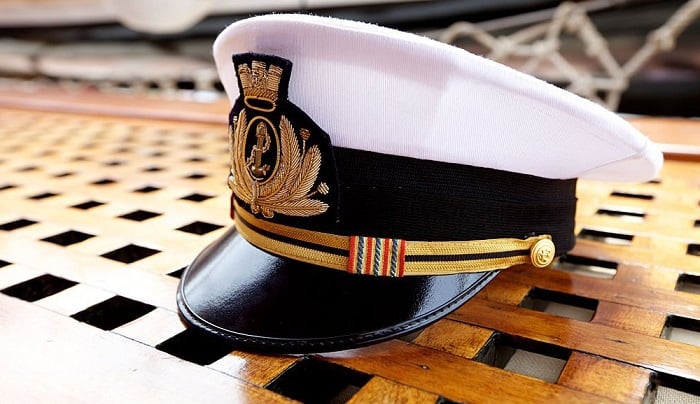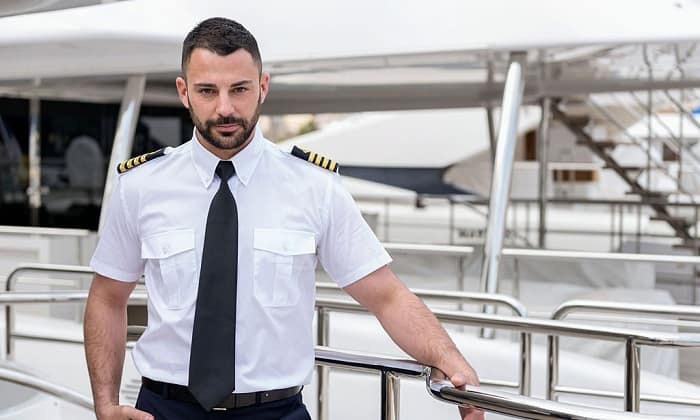If you’ve spent time boating, you may have heard of a captain’s license and that you may need it eventually. But what size boat requires a captain’s license to operate? Do I need captains license for my personal boat?
No official boat size is specified to require a captain’s license, but it is needed to host paying passengers. In other words, determining whether you need a license is not as simple as looking at a number. Let’s take a look below.
Table of Contents
How Big of a Boat Requires a Captain’s License
What size boat requires a license is not the right way to determine whether one is necessary for a vessel. It is not about the dimensions of the watercraft or what length boat it is; it’s about how it is used.
Anyone taking on paying passengers must have a captain’s license regardless of boat size. A paying passenger is defined as someone who contributes financial gain to the vessel. If the vessel is an inspected or commercial one, then the license is needed regardless of size as well.
A captain’s license will also increase the likelihood of you getting a discount from insurance companies. So even if you’re not getting a large vessel for financial gains, it still may help to have a captain’s license in the first place.
With a captain’s license, you will be able to operate a commercial vessel or a civilian one
that has paying passengers or cargo on board. The USCG captain’s license needs to be renewed every 5 years.
That said, laws and regulations may vary from state to state, so it pays to be mindful of what certificate is necessary to operate watercraft in each region.
- For instance, in Texas, anyone born from Sep 1, 1993, must have a boater education card when navigating a 14-feet boat or bigger.
- In Michigan, however, a license of the Department of Natural Resources is required for in-land boats, no matter the size or number of passengers.
- For anyone who rents a boat in Maryland, a temporary boating safety certificate is necessary. Without this certificate, anyone under 16 operating a boat would need supervision from a person with one.
Types of Boat Captain License
There are different types of captain’s licenses. These can be broken down in a few ways, such as based on vessel gross tonnage.
In general, there are two main types; the OUPV and the Master license. The Master can be further subdivided into Inland Waters/Great Lakes for specified inland areas and Near Coastal Water for 200 miles off the coast.
You don’t have to get a Master license right away. You can start with an OUPV and turn it into a Master at a later time.
There are USCG license requirements common to all types, such as the CPR and First aid certification taken within the last year, the physical examination within the last 12 months, and a drug test in the last 6 months.
1. Six Pack or OUPV
The Operator of Uninspected Passenger Vessel or OUPV is the first type. A person with this type of license is allowed to take on paying passengers, but there cannot be more than 6 at a time. Private boat captain license requirements include the following.
- At least 18 years of age
- 360 days of experience on a vessel
- 90 days of experience near water type you would like to have a license for
All OUPV licenses are allowed to use vessels up to 100 gross tons.
2. Master License
The second type is the Master License which allows for the operation of inspected or commercial vessels along with having more than 6 paying passengers.
However, there are differences in Master licenses with varying vessel tonnages (25, 50, or 100 tons), and the body of water where you are allowed to operate (in-land or off-shore).
Most requirements for a Master license remain the same for its subtypes. These include the following.
- 19 years of age
- Documented experience on the water; length varies depending on license type
- 90 days of experience within the last three years
How to Get Your Captain’s License
Getting your captain’s license in USA is a long process and involves a lot of paperwork. We won’t go through every bit of detail but just focus on giving you an overview of what you will need.
Step 1: Gain the required experience
The first step in getting your captain’s license is to gain experience onboard a boat. It doesn’t have to be professional, any boating experience is counted. However, you will need to document this experience as evidence of your time on the water.
As stated above, where you spend your time also matters, depending on what license you are aiming for. The gross tonnage of the vessel also matters since this may affect what tonnage license you can apply for.
Step 2: Captain’s course and the USCG exam
You will also need to pass the USCG exam. However, this test requires you to know a lot, and one of the best ways to ensure that what you know is enough is to go through a captain’s course.
There are many available options for courses these days, some of them online as an alternative to traditional classroom-based lessons.
Step 3: Go through the application process
Before applying, you will need to get the required documents and certifications. Some of these requirements include:
- Transportation Worker ID Card
- Drug screening and medical exam
- First aid and CPR certification
- Proof of residency
These are necessary along with the specific forms required depending on what license you are applying for, but this is not a complete list. You will need to accomplish several other papers and pay fees before the application process is complete.
Do You Need a Captain’s License?
A captain’s license is needed when taking on paying passengers or operating an inspected vessel. If you only use your boat for private trips with family and friends, then it is not necessary.
However, should you plan to use your boat for financial gains and want a discount on insurance, a captain’s license is absolutely necessary.
Frequently Asked Questions
Do license rules and regulations vary between states?
Regarding the captain license, most details are the same and certain details, such as renewal, should be the same everywhere. Nonetheless, you should expect certain differences and refer to your state regulatory body for more information.
In addition, the regulations for operating nautical vehicles may vary drastically between states, so while a captain license is not necessary, some kind of certificate may still be a must-have for my yacht.
In NY, for instance, you don’t need a boating safety certificate if you’re older than 18. In contrast, in Florida, this certificate is a must-have for anyone born from Jan 1, 1988, onward when operating a boat with more than 10 horsepower.
How big of a boat can you captain alone?
Even experienced captains should not navigate a boat bigger than 75 feet on their own. However, anything larger than 50 feet would be difficult for one person to navigate without a crew.
Conclusion
Now you know what size boat requires a captain’s license. More specifically, you know that size does not determine this and that it’s all about how a vessel is used. If you’re looking to get one, make a plan since getting the license is a long process.
What do you think about getting a captain’s license? It may be tedious to have to go through so many things, but safety is always the priority. Tell us your ideas in the comments section below.
Remember to boat safely.

“My intention from the first day establishing Boating Basics Online is to provide as much help as possible for boaters who want to experience a first safe and convenient trip. So feel free to join us and share your beautiful journeys to the sea!”



